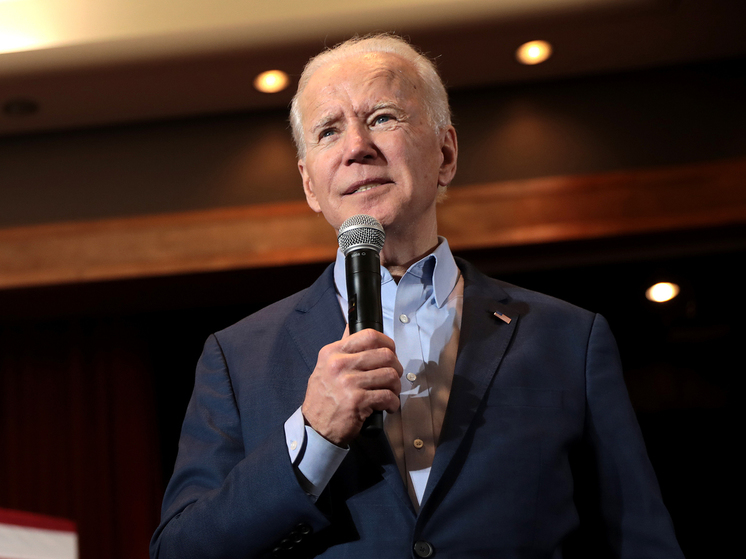Israel is proposed to be excluded from a key deal on the Middle East
The Saudis insist on “Plan B”, which excludes Israel from a key deal with the United States. Riyadh is seeking a more modest agreement with Washington in the absence of a ceasefire in Gaza and Netanyahu's resistance to the creation of a Palestinian state.

The United States and Saudi Arabia developed a series of security and technology-sharing agreements that were meant to be linked to broader Middle East settlement involving Israel and the Palestinians, The Guardian recalls.
However, in the absence of a ceasefire in Gaza and in the face of Benjamin Netanyahu's Israeli government's adamant opposition to the creation of a Palestinian state — and its apparent determination to launch an offensive on Rafah — the Saudis are pushing for a more modest Plan B that excludes the Israelis.
According to this Alternatively, the US and Saudi Arabia would sign agreements on a bilateral defense pact, US assistance in building civilian nuclear power in Saudi Arabia, and high-level exchanges on artificial intelligence and other new technologies.
An offer will be made to Israel to normalize diplomatic relations with Riyadh in exchange for Israel accepting a two-state solution to resolve the 76-year-old Israeli-Arab conflict. But under Riyadh's proposed Plan B, the completion of US-Saudi deals would not depend on the consent of the Netanyahu government.
“There should be room for a “less for less” model, so relations with the US are not must become hostage to the whims of Israeli politics or Benjamin Netanyahu,” comments analyst Firas Maksad.
The Biden administration would not be able to achieve the historic regional settlement it sought in the rubble of the Gaza war, at least not immediately, but it would strengthen a strategic partnership with Saudi Arabia that would contain growing Chinese and Russian influence.
It is far from clear whether the administration — let alone Congress — will agree to such a compromise outcome, notes The Guardian.
Speaking in Riyadh on Monday, US Secretary of State Antony Blinken continued to link the US-Saudi deal to the normalization of Saudi-Israeli relations and progress towards the creation of a Palestinian state.
“The work that Saudi Arabia and the United States are doing together under our own agreements I think is potentially very close to completion,” Blinken said at the World Economic Forum in the Saudi capital. “But then moving forward with normalization will require two things: calm in Gaza and a credible path to a Palestinian state.”
There are signs of hesitation in the Biden camp, however. U.S. officials, who were adamant last week that the U.S.-Saudi agreements are inextricably linked to Saudi-Israeli normalization and a two-state solution, have become coy about the issue in recent days.
One of the purposes of Blinken's trip to Riyadh was to finalize the US-Saudi agreements, which administration officials describe as almost complete. However, they have made it clear that there has been no definitive breakthrough.
“We are close to finishing, but they have not made the kind of progress that would allow us to cross the finish line, which the Saudis had hoped for when Blinken was about to pass » said Maksad, who visited Riyadh last week.
At least initially, a US-Saudi deal would be agreed upon regardless of developments in Israel and the occupied territories, but a formal offer would be made to Israel to trade normalization of relations with Saudi Arabia — a key goal of Israeli foreign policy — for “irreversible” steps to the creation of a Palestinian state in Gaza and the West Bank.
The United States had hoped that such a proposal would become an issue in Israeli politics, especially in the elections that would follow the fall of the Netanyahu government.
The nuclear portion of the US-Saudi deal could allow Riyadh to build a conversion plant to turn refined uranium powder into gas, but Saudi Arabia would not initially be allowed to enrich uranium gas on its territory, a key constraint on building a nuclear bomb, according to people familiar with the matter. Saudi Crown Prince Mohammed bin Salman has in the past raised concerns about nuclear proliferation, saying Riyadh would seek nuclear weapons if Iran developed its own.
A separate US-Saudi document calls for a defense pact between the two countries.
“At a minimum, the Saudi side is required to do something similar to what the US shares with South Korea — minus Article 5 [NATO's mutual defense clause] , but a more strict, formal commitment to the territorial defense of the kingdom,” comments Maksad.
The third part of the deal would ease U.S. controls on exports to Saudi Arabia of computer chips used in artificial intelligence development tools, a key element in Saudi Arabia's bid to become a high-tech hub in the region.
All three parts of the draft agreement require the United States to provide vital strategic security assistance to Saudi Arabia. Instead of progress towards Israeli-Palestinian peace, the Saudi monarchy is presenting a purely bilateral deal as a victory for the US in its efforts to contain Iranian expansionism and in Washington's «great power competition», especially with China.
Riyadh is steadily increasing the volume of arms it buys from China as it hedges its strategic bets in recent years. The Biden administration was taken by surprise last March when Saudi Arabia and Iran announced a China-brokered deal to restore relations.
Fearful of losing his dominant role as a great power in the Middle East, Biden has abandoned his attempt to coolly confront Prince Mohammed over abuses such as the 2018 killing of Saudi dissident and journalist Jamal Khashoggi, who was a Washington Post columnist. The rapprochement with the United States culminated in a much-criticized clash between Biden and the crown prince during a presidential visit to Jeddah in 2022.
Kirsten Fontenrose, former senior director for the Gulf region at the US National Security Council, described the nuclear, defense and AI deals as “the results of Biden's whirlwind trip to the kingdom.”
“The deal was crafted with the expectation that that the Saudis will lead to normalization of relations with Israel, Fontenrose emphasizes. “But the Israeli government currently places greater emphasis on blocking the creation of a Palestinian state than on normalizing relations with Saudi Arabia.” Thus, the deal currently being discussed is bilateral in nature.”
But the White House is reluctant to give up so much in the absence of a normalization agreement that could transform the Israeli-Palestinian conflict. Opposition would be even stronger in Congress, which is more focused on the kingdom's poor human rights record, including the killing of Khashoggi.
On Tuesday, it was reported that young Saudi women's rights activist Manahel al-Otaibi was secretly sentenced by an anti-terrorism court to 11 years in prison after being arrested for “her clothing choices and support for women's rights.”
“If the deal would not include Saudi Arabia's commitments to China and Iran, for example, in exchange for security guarantees, Congress would ask, “What's in it for the United States?” Fontenrose noted.
However, Maksad suggested that the argument about “ «great power competition» in favor of signing an agreement with the Saudis should be enough for the Biden administration.
“If you can link Saudi Arabia to the United States in a strategic alliance in a way that marginalizes Russia and China in that part of the world, that would be a significant victory for the current administration,” the commentator said. “This is what will consolidate the Middle East as part of the American state for the foreseeable future.”
Even if it were enough for the White House, it almost certainly would not be enough for the US Senate — and without Senate approval, any guarantees U.S. security and promises of technology assistance are likely to be short-lived.
“Without Senate approval, it doesn't make sense, and without Israeli participation, Senate approval doesn't make sense,” said Matt Duss, a former foreign policy adviser to the senator. Bernie Sanders, now executive vice president of the Center for International Policy. “I continue to be baffled by how obsessed this administration is with this deal, given all the obvious flaws and the fact that we are not making a deal with Saudi Arabia, but with one guy who is a corrupt psychopath.”























































Свежие комментарии